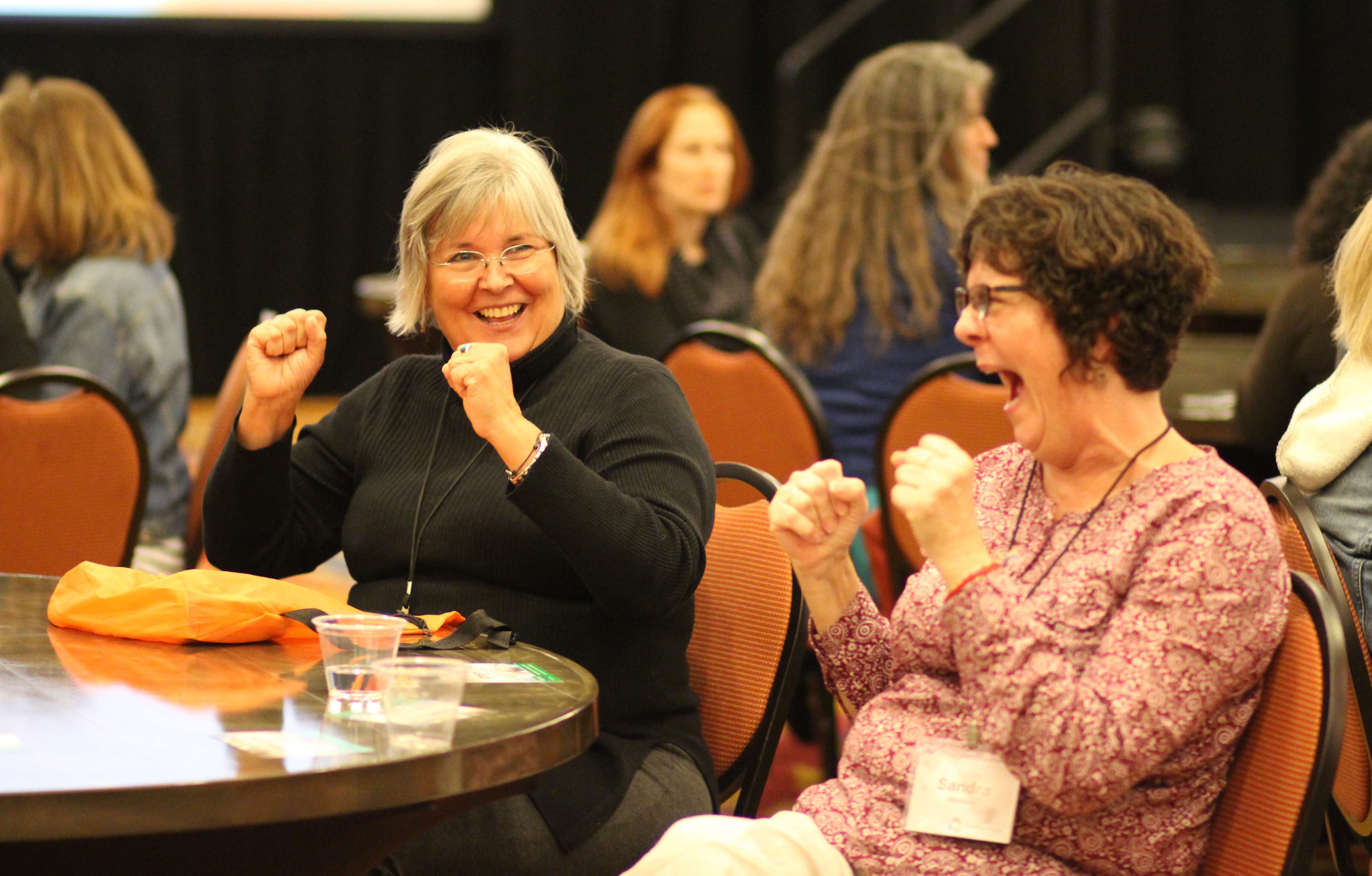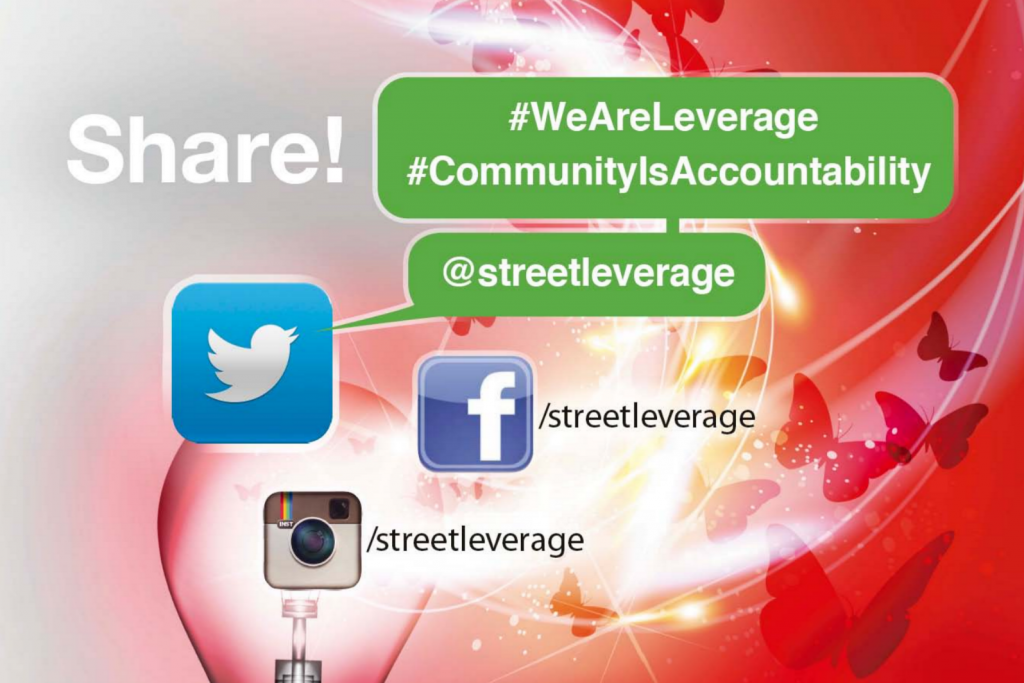
In a world where online and face-to-face interactions have lost a level of compassion and understanding, Diana MacDougall outlines a “Civility Revolution” to elevate the discourse of sign language interpreters.
The notion of “civility” has been tossed around these past several years, not only by the sign language interpreting profession, but in other professions (such as nursing and education), across the board on Social Media sites, and in ethics discussion groups, like the Institute for Global Ethics. Everyone is concerned about how we are treating each other, and with good reason. In an era of social media, hit-and-run cyber-demeaning comments can be posted anonymously with impunity. Through the creation of the global internet and online social media (where nobody has to see our faces or know our true identities), we have somehow removed civility and humanity from interactive expectations.
#CommunityIsAccountability
In recent months, StreetLeverage contributors have posted articles on civility, accountability, diversity, and social consciousness within interpreting. They are each timely, and yes, necessary, for our membership to read/watch. (After all, our own CPC tenet 5.1 reminds us to “[m]aintain civility towards colleagues, interns, and students” as a code we all agree to adhere upon joining our professional organization.) The most recent StreetLeverage conference in April stressed civil behavior towards each other in our interactions and discussion groups at least once a day. (And I have to say, this past conference was one of the most socially conscious and aware conferences I have EVER attended in my professional career!) Sitting back and watching the interactions of the participants and the leaders’ role model what civil interaction looks like, I began to think about what “civility” meant and what was needed to carry this movement to the next level. Centering our conferences and discussions around the notion of civil dialogues and accountability for our individual social behaviors is an important step towards a paradigm shift in how we interact with each other. But how do we take it beyond the intermittent “reminders” to “play nice”, if you will? What was it about this past conference that worked so well that could be replicated more consistently for ALL interpreting conferences, and carried over into our own lives as interpreters and as human beings?
Exploring Micro and Macro Levels of Interaction
As a Sociologist who studies social discourse, I often lecture on the concepts of the macro and micro levels of interactions. The “macro” is from an institutional, or large-scale level. The micro is from an individual or small-scale level. For the purposes of this article, I would like to consider our profession as the macro and our individual selves as the micro. I know that when I look at the larger schema of something—say, social injustice—I feel overwhelmed when trying to navigate my place in the world for change. It feels impossible, so I have a tendency to walk away from a global issue. But from the micro level, it feels more manageable; I can do something within my world—my life—to affect change. It is doable; therefore, I am more apt to participate in a social cause. At the micro level, we can see a ripple effect from our actions. It is a basic “cause and effect. Over time, our actions become habitual; therefore, changing how we behave. Because of our social interactions as humans, our behavior influences others around us. In time, other people’s behaviors affect larger groups, and ultimately affect social norms for what is considered—at the macro level—as appropriate behaviors within a society. So, with that being said, I am declaring a “call to arms”, of sorts. Yes, a revolution within our profession, starting at the micro level: us—individually!
Civility Revolution: Tools
As of today, I am declaring a “Civility Revolution”! What will be needed from us as collective individuals? Here are five values for what I believe we will need to “arm” ourselves for this revolution:
Moral Courage
The first would be a commitment to moral courage. Kidder defines “moral courage” as “[s]tanding up for [our] values”, stating that “having values is different from living by values” (2005). Moral courage requires “compassion” towards our fellow human beings.
Compassion
Compassion involves not only sympathy towards others’ experiences but empathy for them, as well. Putting ourselves in other people’s shoes will carry us far in being civil towards others.
Integrity
To be morally courageous and compassionate, we will need another quality necessary to arm ourselves in this revolution: integrity. To me, “integrity” means knowing the difference between right and wrong and choosing to do right, whether anyone is watching or not, and whether it is uncomfortable to do so or not.
Accountability
Another piece of “armor” we need to put on is “accountability”. This is something missing in Western societies due, in part, to technology, where people no longer have to face their objects of critique. We have learned to say whatever we feel about others without thinking about the pain we may cause them. Learning to accept accountability for our words and actions is necessary for a Civility Revolution.
Commitment
And the last piece of armor we need is “commitment”. Individually, we need to commit to following through on living by our values. It is not easy; there are times when standing up for what we believe has a social price to pay. No one wants to be disliked (an American societal condition), and no one wants to be called a “moral busybody”. But, again, as we change our behaviors at the micro level, we eventually affect change at the macro level, and before long, civil behaviors towards others will become the status quo again.
Revolution in Action
The theory is a good one. But we’ve had enough of theory and “discussions” on the topic. What would this look like in action?
Some ideas:
- As individuals, we can interrupt audist/racist/sexist/etc. remarks when we see/hear them.
- As individuals, we can choose to sign in Deaf/Hearing mixed environments for full access for everyone involved, even when others choose not to. (This one takes moral courage, but is SO doable; I believe in time, we will affect change in this arena if we are diligent in our commitment to this action.)
- As individuals, we can respect the diverse perspectives we have within our communities by modeling the discursive language we use with each other.
Commitment to Civility
So, as you can see, “civility” is definitely an action word! We need to commit to standing together in our individual behaviors at the micro level by demonstrating collective moral courage through our common values of compassion towards our colleagues and clients. By committing to behaving with integrity through accountability for our actions, we CAN begin to affect change in how we interact with one another. So…are you with me? Who will join me in a Civility Revolution!?
Questions for Consideration:
- What are three specific habits sign language interpreters can develop and employ to elevate civility in interactions with colleagues? With those who utilize interpreting services?
- Remember a time when a colleague did not interact with you in a civil manner. If you could go back to that situation and experience it again with new tools and perspective, how would you approach the person? How can you apply this to future experiences?
- Beyond more civilized discourse, how can sign language interpreters and those who utilize their services benefit from this approach to engagement?
- How can sign language interpreters support each other in taking on this call to action?
References:
- Ball, C. (2012). What Role Does Civility Play in the Sign Language Interpreting Profession? Retrieved October 21st, 2015 from http://StreetLeverage.com
- DiFiore-Rudolph, G. (2015). Civility Within the Interpreting Profession: A Novice’s Perspective from December 29th, 2015 http://StreetLeverge.com
- Institute for Global Ethics. http://www.globalethics.org
- NAD-RID Code of Professional Conduct. (2009) Retrieved June 30th, 2016 from http://rid.org
- Kidder, Rushworth, M. (2006). Moral Courage. HarperCollins Publishers. NY, New York.




